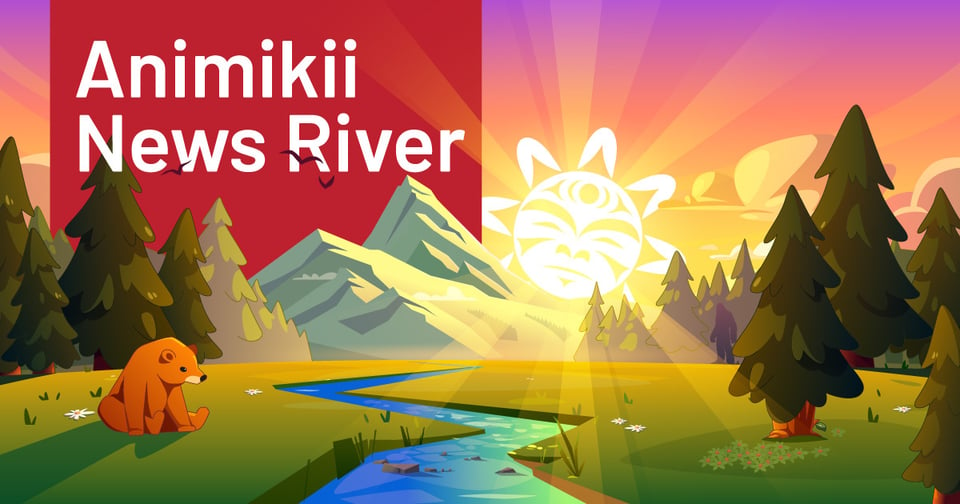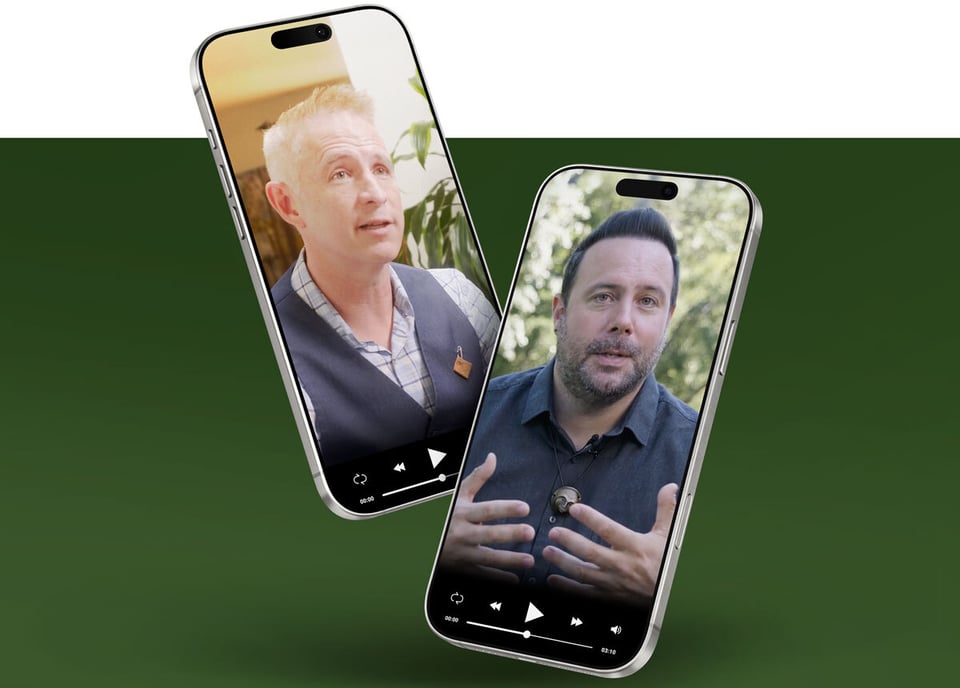Indigenous opposition to genetically modified wildlife
Exploring synthetic conservation technologies and Indigenous youth perspectives on data sovereignty.

Boozhoo News River Readers,
This week's News River brings you stories of interest about Tribal Broadband Bootcamps, Indigenous opposition to genetically modified wildlife, and also a youth perspective on data sovereignty and AI from a member of One Young World’s Indigenous Advisory Circle.
These stories are powerful examples of integrating Indigenous knowledge into modern technology for more just and equitable outcomes for all.
As always, your time spent here is appreciated.
This week’s stories include:
Data sovereignty is youth sovereignty: Rewriting the rules of AI and open data
‘Advancing digital sovereignty’ with Tribal Broadband Bootcamps

Do investment processes have to be inherently extractive?
The big picture: Investment processes and relationships are often extractive, at odds with the approach of Indigenous entrepreneurs. Collateral requirements, rigid repayment schedules - a system designed without Indigenous realities or values in mind.
Why it matters: Raven Indigenous Capital Partners offer a patient, culturally safe framework to Indigenous led or owned enterprises providing capital aligned with Indigenous values and supporting economic reconciliation. “I reached out to a lot of folks in my network, traditional lending, including my bank of 20 years and I got a no,” says Jeff Ward, CEO and founder of Animikii. “Our first investment was from Raven Capital and from there we've been able to scale and grow our team. ”
Key points:
Raven Indigenous Capital Partners have backed 20 Indigenous led businesses across Canada.
From innovative housing solutions that centre dignity and sustainability, sustainable food companies creating jobs close to home, technology firms bridging the digital divide, and so much more.
Over 90% of the portfolio companies are still growing, while maintaining their commitments to impact.
What they’re saying: “Canada’s economic future runs through Indigenous territories and Indigenous communities, and Indigenous entrepreneurs are a fundamentally important part of that journey.” Paul Lacerte, Chief Purpose Officer, Raven Indigenous Capital Partners.
Learn more: Raven is demonstrating how capital can be grounded in culture and Realize Capital Partners is with them.
Curated Articles:
Data sovereignty is youth sovereignty: Rewriting the rules of AI and open data
AI promises to “know” everything—but who decides what can be known, and by whom? As a young leader, I am honored to be part of One Young World’s Indigenous Advisory Circle and to work alongside thousands of Indigenous youth who are advancing data sovereignty in our communities. For us, data is not raw material. It carries story, ceremony, and responsibility. When algorithms scrape the internet and call it “open,” they often ingest our culture without consent. The fastest way to make AI safer is also the most ethical: let Indigenous peoples govern our own data—starting with youth who will live with the consequences the longest. Indigenous Data Sovereignty means our peoples decide what information about us—our lands, languages, kinship, and knowledge—gets collected, how it is stored, who can use it, and under what conditions. Consent is not a checkbox; it is an ongoing relationship with obligations on both sides. In practice, that looks like community-controlled rules for collection, access, use, sharing, and benefit across the full data lifecycle, with the authority to say yes, no, or not yet. When our data is treated as ownerless, harm follows.
Indigenous Identity Is Being Misrepresented by AI — Is Your Business Part of The Problem?
AI is reshaping storytelling — but is it honoring Indigenous communities or erasing them? Here’s what every entrepreneur needs to know before they hit “generate.” If you’re an entrepreneur using AI tools to generate images, text, or branding that references Indigenous peoples, this is more than a cultural issue. It’s also about integrity, trust, and being on the right side of history. Knowingly publishing AI-generated content that misrepresents or stereotypes Indigenous people risks damaging your credibility, alienates communities, and may even spark legal or reputational battles. Indigenous communities worldwide are advocating for data sovereignty, the right to control and govern the use of their data, including language, stories and images. Organizations like the Collaboratory for Indigenous Data Governance and the Indigenous Protocol and AI Working Group are leading the charge. They say that AI shouldn’t use Indigenous data without consent, and when it does, it should be to the benefit of Indigenous communities. For entrepreneurs, this means choosing tools, datasets and partnerships that align with these principles. It also means amplifying Indigenous-led AI initiatives. Supporting data sovereignty is about saying: your voices matter, your knowledge matters and we’re following your lead.
Global conservation body backs genetically modified wildlife over Indigenous opposition
Indigenous leaders say free, prior, and informed consent must guide decisions about synthetic conservation technologies on their lands. This week, members of the International Union of Conservation of Nature, one of the world’s largest conservation groups, voted against a moratorium on the release of genetically engineered species into the wild to assist in conservation efforts and in favor of the use of synthetic biology, the technology used to alter or “edit” genetic material in living cells. At issue is the efficacy and ethical safeguards related to genetically engineered species. Since the 1990s, genetically modified foods have been available to consumers in grocery stores. However, as gene editing technology has improved, scientists have worked on efforts related to climate change, such as disease vectors carried by mosquitoes, which have increased due to hotter temperatures driven by climate change. “At this point, the science is new, and we don’t actually have data or evidence to suggest that it could be safe,” said Dana Perls, a senior food and technology manager at Friends of the Earth, a network of environmental groups. “Instead, we have evidence that suggests this is highly risky. It’s irreversible.”
‘Advancing digital sovereignty’ with Tribal Broadband Bootcamps
Davida Delmar jokingly says during a few days into her instruction at a Tribal Broadband Bootcamp that she’s a really good fiber splicer, which is the act of joining two optical fibers end-to-end, and it’s due to her experience in beadwork. She asks who else is a beader. More often than not a woman answers, Delmar said, who is Navajo. “This is like kind of one instance that I definitely do almost every boot camp because I want to encourage women that this space is for you, despite being a male dominated field that I see more and more women, especially in tribal ISPs (Internet Service Providers), taking the reins and entering the work,” she said. Delmar has attended 16 Tribal Broadband Bootcamps, mostly as an instructor but first attended to learn about fiber. She said she’s seen a lot of women heading tribal networks. It’s a space that tribes are trying to break through, and it hasn’t been easy.
First Nations artists warn against AI 'double colonisation' as Meta uses work for training
First Nations creatives have warned against a "double colonisation" if the government does not implement strong guardrails to protect their work from being used to train AI language models, without their permission or payment. Gunai woman and writer Kirli Saunders says she was disgusted upon learning Meta had "stolen" her work to train its artificial intelligence model. The award-winning author said the company took her book Bindi from the online database LibGen, without her permission or payment. Saunders's book was one of thirty-seven First Nations titles used by Meta from Indigenous publishing house Magabala Books. Magabala Books chief executive Lilly Brown said the unchecked development of AI threatened Indigenous Cultural and Intellectual Property (ICIP), and many of the works taken were deeply personal to the creators. "This kind of history of First Nations knowledge and stories being stolen by non-Aboriginal people and corporations is nothing new," she said. "When we were first alerted to what happened with Meta, what it did was take us back to a lot of these kinds of colonial and problematic practices that have for so long been a part of the way that our stories have been shared."

Add a comment: